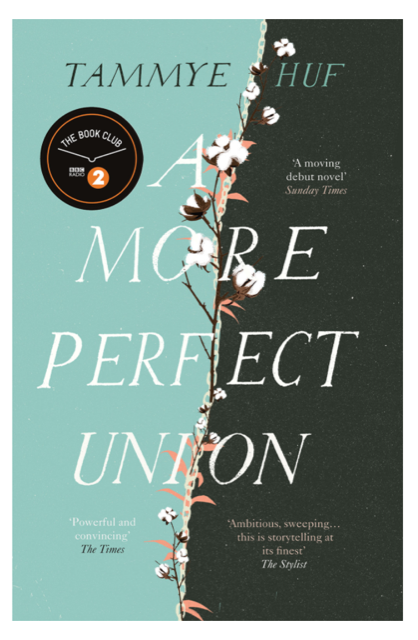10 tips for writing historical fiction from Tammye Huf, debut author of A More Perfect Union...
History can be a wonderful source of inspiration, with all those worlds ready for your characters to inhabit, but historical fiction requires a particular commitment from a writer. On top of grappling with the usual elements of story, a writer must authentically represent the historical age.
Writing my historical fiction novel, A More Perfect Union, has taught me quite a lot about the particular challenges of this genre and I’ve boiled down some of what I’ve learned into my top ten tips on writing historical fiction.
1) The importance of research cannot be overstated. You can never know too much about your historical period (although you can certainly include too many historical details in your story – more on that later). Be prepared to go deep with research in order to write authentically. Gain the trust of your reader by providing enough specific historical details…
2) …but don’t include too many details. Know the difference between showing and showing off. After investing all that time into learning so many interesting facts about your time period, there is a temptation to overshare with the reader. It’s not a history lesson you’re writing, it’s a story. Sometimes less is more.
3) One false assumption I initially made was that readers would have the same background knowledge of my historical period that I had. Even before you do your deep-dive research, chances are you’ve chosen an era that you’re drawn to. It’s very likely that you already know more about it than the average reader. Be sure to give enough background so that your readers know what you need them to know. The last thing you want is for your reader to think, ‘What’s the big deal that the crop failed? Just plant something else, go to the store, let them eat cake.’ When what you want them to think is, ‘Now everybody is going to die unless something drastic happens.’
4) And, to slightly expand on the above point, timing is everything. Signpost your setting as soon as possible and share important information early. When your readers see a soldier in a brown uniform, you want them to know what it means and you want them to feel that tingle of fear (or that sense of relief, depending on your character’s situation). If you have to explain, in the moment, why the situation is dangerous for the character, it’s a bit like having to explain a joke. The reader will get it, but it just won’t have the impact.
5) Historical authenticity is important. No steel tipped arrows in the Middle Ages, please. Despite having done loads of research upfront, you’ll likely find that when you write you’ll still need further specific deep-dives to sort out specific plot points, like how long a character would take to travel on horseback from Paris to Rome.
6) Get the historical details right, but story comes first. Never get so wrapped up in the feel of the 19th century homespun, that you let your characters go flat or neglect the narrative drive.

7) What kind of research do you need? I found it helpful to get as close to the history as possible. Go visit that plantation or castle or ship if you’re able to. Use primary sources whenever you can. Letters, memoirs or eyewitness accounts can all be great resources. So can paintings and sketches (or photographs, if they existed). Even reading the laws of a society will help you understanding its values. Was it legal for women to inherit property? How harsh was the punishment for petty theft? The more varied your sources, the fuller your picture.
8) Choose an exact time and place. Writing about Tudor England or Colonial America is just too broad. Is it a Catholic or Protestant Tudor England? Does the story in Colonial America take place when the colonists face their first winter or when they’re preparing to rebel?
9) The time period and place will shape the characters and inform how they act in a given situation. The more you know about their world, the better you will know your characters. They are not just modern people in costumes. They will have the concerns, prejudices and values of the time.
10) Your characters should sound authentic but shouldn’t be hard to understand. Some well-chosen words of the era and a different cadence of speech can go a long way and keep the reader from having to decipher deep slang.
For me, writing my historical fiction novel was a labour of love. There is a special joy in bringing the past to life on the page. Of course, writing historical fiction requires an extra commitment to research but the thrill of convincingly transporting a reader back in time is well worth it.
Tammye Huf’s historical fiction debut, A More Perfect Union, was selected for the BBC Radio 2 Book Club as well as for several prominent Best Books lists. Her short stories have been published in various magazines, including Diverse Voices Quarterly and the Penman Review. She was runner-up in the 2018 London Magazine Short Story Prize.
Find out more about Tammye on her website.
Follow her on Twitter @TammyeHuf and Instagram @tammyehuf
Comments